Back to The Discus.com Learning Center
Back to The Discus.com Learning Center
The discus is a unique fish in the aquarium industry because it presents the aquarist with options no other species affords. Here are 10 reasons why the “King of the Aquarium” is perfectly capable of providing a superior aquarium experience over marine options. Over time for these and other reasons, it is not difficult to see why dedicated hardcore discus keepers have emerged — their imaginations captivated by the versatility and potential of this species. Believe it or not, particularly in Asia, most discus keepers refuse to keep any other species of fish. These collectors will only keep discus — and even then, in bare-bottom tanks!
1) Colors and patterns. No other fish in the world has been bred to exhibit the dazzling array of coloration and patterning exhibited by discus. Rivaling the most vivid marine color spectrums, the sheer number of different available hue combinations of blues, greens, reds, oranges, yellows, and whites is simply stunning. Furthermore, throwing patterns into the equation: striated, thick-lined, thin-lined, spotted, etc gives one a sense of the sheer number of possibilities. To make discus even more interesting, new strains, colors, and patterns are being professionally bred and invented every day by dedicated breeders and hobbyists around the globe.
2) Round body shape. At least 1,650 cichlid species have been scientifically described, making it one of the largest vertebrate families in the animal kingdom. Among cichlids, the discus is the roundest cichlid, making it highly unusual within the cichlid family as well as among fish species more generally. In order to better understand the significance of the discus’ shape, it is important to understand that the circle is a universally-accepted and loved shape in many world cultures. The circle represents unity, Planet Earth, completeness, and harmony. Fully grown discus specimens resemble large dinner plates, and the fact that discus swim vertically puts their colors and patterns on full display and affords aquarists maximum viewing pleasure.
3) Size. The discus is not a small, diminutive fish! There exists quite a bit of girth and sheer substance with discus. Assuming that discus are kept in ideal conditions, aquarists are presented with the possibility of having their fish grow in excess of 8 inches. This extremely impressive full-grown size may not be for everyone. However, for aquarists seeking a physically substantial fish with tank presence, the discus is the perfect species for making a statement in any aquarium while serving as an interesting conversation piece. It would be no exaggeration to say that most aquarists consider their discus to be the centerpiece of their collections.
4) Modularity (collectibility). In the wild, discus are a shoaling fish, forming entire fish colonies and communities in the Amazon river. On the other hand, these fish are also perfectly content with living solitary lives with one or two specimens occupying a community or planted tank. Whether an aquarist aims to keep a single fish or 20, every discus is a unique individual that may be added to form a larger colony of fish or even paired off for breeding in a dedicated pair tank. Therefore, individual units of a colony have no impact on the larger scope of a collection. The discus’ sheer versatility has helped it become one of the most collectible fish in the world primarily because they thrive equally well in either planted/community or dedicated aquariums.
5) Non-aggressive personalities. Discus are known to have amiable temperaments and co-exist with other species without issue. For instance, angel fish, corydoras, plecos, and tetras are popular choices for tankmates. While bullying may occur with male fish, it is generally a rare occurrence.
6) Highly collectible and desirable. Unlike other in-demand freshwater cichlids such as the frontosa or flowerhorn, demand for offspring does not dwindle beyond F1 and F2. Discus maintain their value beyond generational classifications. Strain, pattern, shape, and coloration are everything when it comes to determining value.
7) Large community of breeders/collectors. With discus, there is something for everyone. Whether, one is a hobbyist looking to build a community tank, a dedicated collector with a collection worth tens of thousands of dollars, or a breeder looking to invent the next never-before-seen discus, discus offer something for everyone. The opportunity is infinite, and there exists a specific color-pattern combination to satiate every aquarist regardless of background, specialty, and age group.
8) New variations and forms are being constantly created. Unlike most marine species, discus are extremely breedable fish. The opportunity to create a brand new never-before-seen color-pattern combination fully presents itself with discus. New variations and forms are being constantly created through selective and creative breeding. In other words, the variant space that exists with discus is limitless and is only bounded by imagination.
9) Upfront cost. Getting a discus tank up and running does not cost a fortune. Unlike a marine tank, where live corals, protein skimmers, sumps, and complicated filtration systems are needed for a finely-tuned environment, getting a discus tank operational is affordable and simple.
10) Easy to keep. Tank and water conditions are easy to fulfill. The main thing for discus keepers to be mindful of is achieving a set routine for water changes.

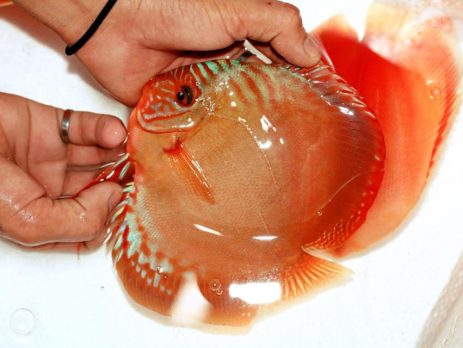
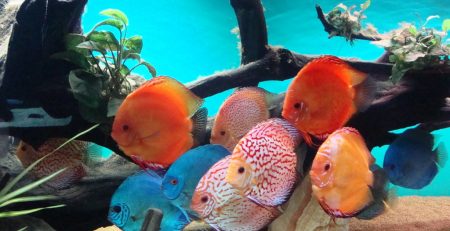
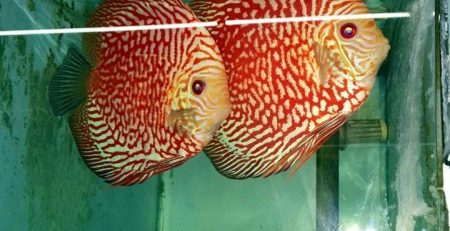
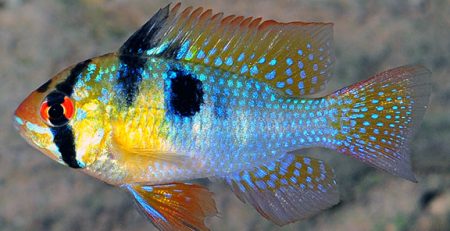
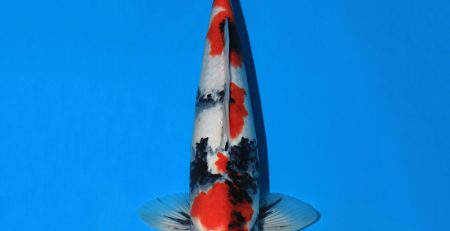
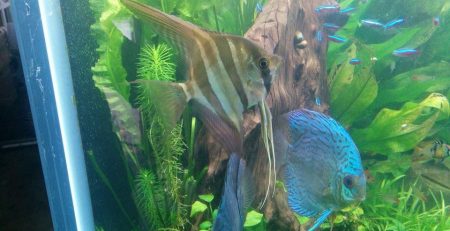
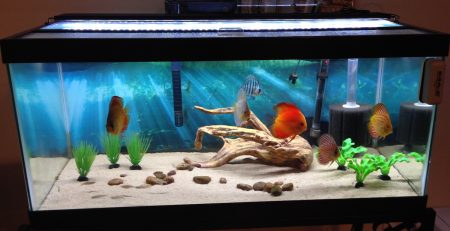
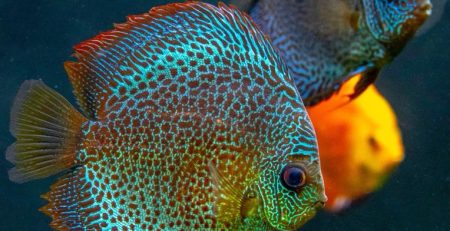
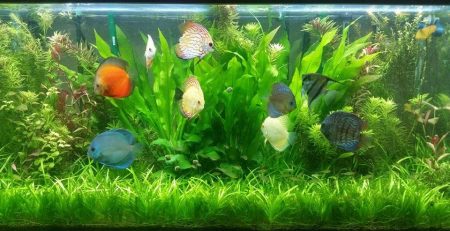
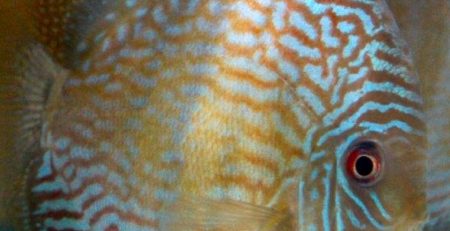
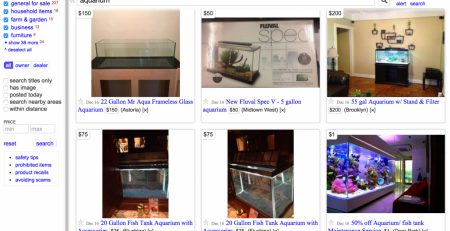
Leave a Reply
You must be logged in to post a comment.